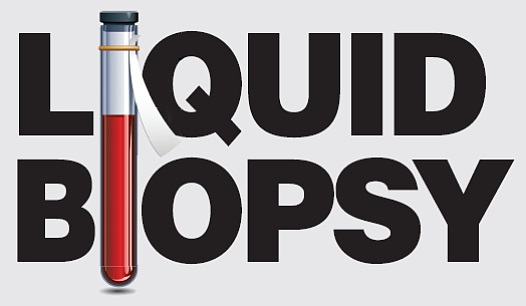
08 Jul Cancer: Breakthroughs with the other C-word
Particularly because California and the Bay Area each reported nearly 75% increases in daily cases of COVID-19 in June compared to May, virtually any other healthcare story has been blown off the pages of medical news. Yet, while we’ve been busy sheltering at home, a major medical breakthrough has been quietly brewing in Menlo Park that has the potential to detect another potentially fatal disease before it’s too late: Cancer.
Last year, it’s estimated that over 600,000 Americans died from cancer – and over 1.7 million people were diagnosed with the disease. And, frankly, the American Cancer Society estimates that more than one out of every three of us will be diagnosed with cancer sometime during our lifetime. The great news is that the cancer death rate has dropped 27% in the past 25 years. In fact, for localized breast cancer – next to skin cancer, the most common type diagnosed in women – the 5-year survival rate is 99% – if it’s caught early. But, if it’s not, and has spread to a distant part of the body, the 5-year survival rate drops to 27%, according to cancer.net. And, to arrive at that early diagnosis, as most women know, currently, the gold standard is a bi-annual mammogram.
Now, a mammogram may sound innocuous, but for any men still reading this, let me describe why you might prefer an alternative to determine if you have breast cancer. Imagine that you have to put each of your private parts inside a waffle iron, then slowly, but firmly press down – no, harder. To make sure you’re in serious pain, do it again, from another angle. Then repeat with the next one.
But what if you just needed a blood test? The race is on to develop liquid biopsies, blood tests that would allow multiple types of cancer to be detected at very early stages – when it’s most curable. This is often referred to as the Holy Grail in diagnostics. Appropriately, one of the leading contenders to discover the grail is GRAIL. GRAIL is a 2015 spin-out from Illumina, the $3.5 billion company that markets a system that analyzes genetic variation and function – aka genome sequencing.
Already, Illumina’s Verinata Health offers noninvasive prenatal DNA testing that can identify fetal chromosomal abnormalities, as an alternative to the very invasive amniocentesis test. In fact, that’s how the potential for cancer diagnosis was discovered, when 10 of the first 100,000 women tested (0.01%) presented with what The Wall Street Journal called “unusual chromosome patterns.” Turned out all of the fetuses were fine, but each of the 10 moms had cancer. So Illumina spun out GRAIL to further investigate this finding. Most DNA screenings for cancer-risk test only a single gene site, like BRCA1 (that Angelina Jolie made a household word).
Where the technology blends with the biotechnology is that GRAIL uses “industrial grade artificial intelligence to find patterns in a million DNA fragments.” In the process, GRAIL detects the signature of actual cancer cells in a blood sample. According to peer-reviewed data in the Annals of Oncology, the test can find 50 different types – more than half of all known cancers – in Stage I or earlier: before symptoms show up, when treatment results in 90% 5-year survival, compared to Stage IV, which has only a 20% survival rate.
By the way, it turns out mammograms aren’t just painful, their false-positive rate is 11% among patients 55 to 79. And, for men, PSA prostate tests can have a false-positive rate of 75% – no wonder the tests are controversial! Worse yet, GRAIL’s chief medical officer Josh Ofman points out that “80% of cancer deaths are from cancers that we don’t currently screen for.” GRAIL’s false-positive rate is less than 1%, and it’s more than 93% accurate in identifying the type of cancer, since, as Anne-Renee Hartman, MD, GRAIL’s VP of clinical development, points out, “Tumor DNA has a unique, identifiable genomic signature that can be detected through sequencing and attributed to a specific organ in the body.”
Getting to these results hasn’t come cheaply. So GRAIL has raised nearly $2 billion – from the likes of Bill Gates and Jeff Bezos. Hopefully, the test will soon be available. And, will prove its value to insurers who will reap the benefits of early detection and treatment of cancer, rather than the huge payouts that accompany later-stage diagnosis, for surgery, chemo, and radiation therapy – to say nothing of the loss of quality of life, if not life itself, for women who are able to be diagnosed early.
And, if you think $500 is too much to pay for the test, you’ve never had a mammogram.
by Mimi Grant, President, Adaptive Business Leaders (ABL) Organization – Round Tables and Events for CEOs of Healthcare and Technology Companies

